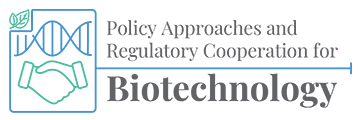Global Low Level Presence Initiative
Cooperators:
Australia, Argentina, Brazil, Canada, Colombia, Costa Rica, Indonesia, Mexico, Paraguay, the Philippines, the Russian Federation, South Africa, the United States of America, Uruguay, and Vietnam
Geography/Region:
Global
Mechanism of Cooperation:
Information Sharing
Category of Cooperation:
Policy
Last Updated:
August 8, 2024
Opportunity for APEC Economies
Eight of the 21 APEC economies have endorsed the International Statement on Low-Level Presence which highlights the importance of information sharing mechanisms in addressing LLP situations, saving valuable resources for industry and governments, and contributing to mitigating food shortages. There is an opportunity for the remaining economies to consider collaboration through their participation in this group.
Description
Three decades after the introduction of genetically engineered crops into commerce, increasing volumes of these are being traded as food, feed, and processed products. There are concerns about increasing instances of the presence of genetically engineered events that have not been approved by an economy due to asynchronous decisions, in their import shipments. This happens because of differences in timelines for approval of genetically engineered events, administrative processes across economies, and varying tolerance to the presence of genetically engineered events in import shipments. This may also happen if a product developer did not apply for authorization in a certain importing economy.
When agricultural commodities are exported by an economy in which genetically engineered varieties are approved and commonly used, it is possible that these varieties may inadvertently be present in a grain shipment to a destination importing economy that has not approved a specific event. Such a scenario is called ‘low level presence’ or LLP for short. According to Codex Alimentarius, LLP for food is defined as low levels of recombinant DNA plant materials that have passed a food safety assessment according to the Codex Alimentarius Guideline for the Conduct of Food Safety Assessment of Foods Derived from Recombinant-DNA Plants (CAC/GL 45-2003) in one or more economies, but may on occasion be present in food in importing economies in which the food safety of the relevant recombinant-DNA plant has not been determined. LLP can cause trade disruption when grain shipments are blocked or rejected by an importing economy. This may further lead to food shortages, price fluctuations, increased costs for government and industry and may very well deter innovation.
Recognizing the importance to manage LLP situations in the interest of global agricultural trade, 15 economies including Australia, Argentina, Brazil, Canada, Colombia, Costa Rica, Indonesia, Mexico, Paraguay, the Philippines, the Russian Federation, South Africa, the United States of America, Uruguay, and Vietnam have worked in a collaborative manner to minimize unnecessary trade disruptions. These economies endorsed an International Statement on LLP. Eight of these are APEC economies working within the APEC High Level Policy Dialogue on Agricultural Biotechnology, towards strengthening trade in the Asia Pacific region. The 15 economies form a coalition called the Global Low-Level Presence Initiative (GLI) which collaborates to work on practical approaches to address LLP situations, address asynchronous regulatory approvals, and allow continued exchange of information on policies of each economy in a timely manner.
The economies that have endorsed the International Statement on LLP recognize that LLP situations can be managed practically using international science-based guidelines on LLP, such as the Codex Alimentarius Annex 3: Food Safety Assessment in Situations of Low-Level Presence of Recombinant-DNA Plant Material in Food to the Codex Alimentarius Guideline for the Conduct of Food Safety Assessment of Foods Derived from Recombinant-DNA Plants (CAC/GL 45-2003). Annex 3 describes in detail an approach to do a safety assessment of the recombinant-DNA plant material in question and outlines data and information sharing mechanisms that could be deployed in cases of LLP situations. The guidance provided in Annex 3 is intended to expedite information sharing between exporting and importing economies so that LLP situations can be resolved without causing unnecessary trade disruptions.
Relevant links
- Low Levels of Genetically Modified Crops in International Food and Feed Trade. Food and Agricultural Organization of the United Nations, Rome 2014. https://www.fao.org/4/i3734e/i3734e.pdf
- Global Low-Level Presence Initiative: https://llp-gli.org/
- International Statement on Low-Level Presence: https://llp-gli.org/llp-statement.html
- Codex Alimentarius Guideline for the Conduct of Food Safety Assessment of Foods Derived from Recombinant-DNA Plants (CAC/GL 45-2003)
